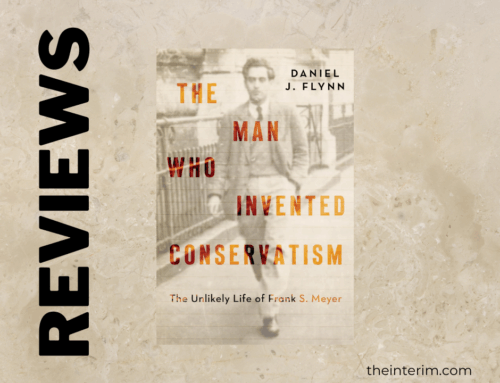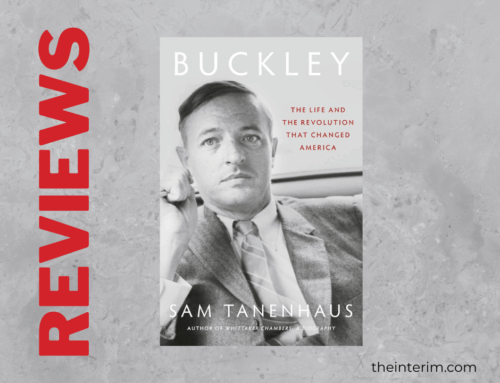On March 4, 1985, the House of Commons discussed for an hour the private Members’ bill of PC MP Gus Mitges. Also participation in the debate were MPs Svend Robinson (NDP), Mary Collions (PC) and Alen Redway (PC). The following are some extracts, together with summaries:
That, in the opinion of this House, the Constitution Act, 1982, should be amended in section 7 of the Canadian Charter of Rights and Freedoms to include a human foetus or unborn human being.
He said: Mr. Speaker, there is no question that this country has split into two decidedly hostile factions since the Criminal Code was amended in 1969 to exclude from prosecution those abortions performed for certain specific reasons in hospitals which have therapeutic abortion committees.
“Those who felt that easy access to abortion is necessary to protect women who are unwillingly pregnant, state that a woman should be able to terminate an unwanted pregnancy freely, and that abortion should be available to all women, regardless of age, marital statue or income level. Those who disagree base their reasoning on a definition of human life which was given by members of a scientific conference in Washington, D.C., which is a follows:
The majority of our group could find no point in time between the union of the sperm and egg and the birth of the infant at which point we could say that this was not a human life. The changes occurring between implantation, a six-week embryo, a six-month fetus, a one-week child of a mature adult are merely at stages of development and maturation.
“It is difficult, if not impossible, for those of us who accept this concept of life find a common ground on which to meet those who choose abortion as a means of ending pregnancy. Because there can be no common meeting ground, emotions run high and a feeling of hysteria is always in the air.
“We who oppose abortion do so because we believe in the right to life. We are depicted by those who are opposed as unconcerned with the reality of the 15-year old girl who is pregnant because she does not know any better, or the mother of five who can see no way to support another child, or the mother who is carrying a defective child. We are seen as forcing a theory of life on a world which is torn by suffering and personal torment.
“Individual liberty” and “freedom of choice” are catch phrases that are fast gaining control of our society. Peoples’ feelings are for what they can see, not for what someone has told them exists. Their eyes and minds focus on the women, not on the child she carries. The sympathy is for the suffering of those already born, not for the one who is waiting to be born; they care not for the right to life, but only for the lives that are apparent.
“Some time ago I received information on the stand of the Canadian Association for Repeal of the Abortion Law. Added to the information were copies of letters which were sent to the Badgley Commission. Without going into detail or individual cases, I would like to quote part of one letter which illustrates exactly what I mean by society’s misunderstanding of the stand which is taken by the right-to-life groups in the country. It reads:
You are doubtless receiving many communications from anti-abortion crusaders. No one is asking them to have abortions. No one is denying them their right to believe that a fertilized ovum is a human person from the moment of conception.
No one expects them to campaign for birth control clinics which are also against their beliefs. These are basic religious freedoms. But the essence of religious freedom is that it applies to oneself, and not that one should force one’s views on those who do not share them.
“I think it is statements such as this which confuse and dismay, more than any of the hysterical accusations which are leveled at the pro-life organizations. It seems to imply that to fight abortion is to put woman into a state of perpetual pregnancy.”
Mr. Mitges went on to discuss such things as the 1977 Badgley Report; the need for proper birth control and sex education; the idea that “abortion, infanticide and mercy killing have a tendency to follow one upon the other;” and the fact that the present law allows hospitals with therapeutic abortion committees to have abortion on demand.
NDP MP Svend Robinson argued that the Mitges bill was contrary to the stand of his party in November 1981 stated Robinson:
“Having said that, I think it is only appropriate that I note that the position taken by the Hon. Member for Grey-Simcoe is fundamentally different from the position taken by the members of his caucus in 1981, including the seconder of his motion, the Hon. Member for Bow River (Mr. Taylor). Perhaps a bit of history on this matter would be in order. In November of 1981, the official spokesperson for the Progressive Conservative Party, then in opposition, moved the following motion. The Hon. Member for Rosedale (Mr. Crombie) moved:
That the proposed Constitution Act 1981 be amended by adding after Clause 31 of Part 1 the following new clause:
“32. Nothing in this Charter affects the authority of Parliament to legislate in respect of abortion.”
What Mr. Robinson did not point out was that this PC resolution was, in fact, rejected. Moreover, it had been proposed only as a last resort, after the government of the day had rejected the Pro-Life request for protection of the unborn within the Charter, the very thing Mr. Mitges was trying to do for years later. As for abortion itself, the MP from Vancouver Burnaby repeated the NDP position in favour of abortion on demand. With respect to birth control he thought that Planned Parenthood of Canada should have increased funding.
Added Mr. Robinson with regard to the NDP government in Manitoba:
“I would like to applaud the steps which have been taken by the Government of Manitoba. That Government has recently embarked upon a very important funding program which enhanced the availability of contraceptives. It also expanded obstetric and gynecological services at a number of Winnipeg hospitals. The Government of Manitoba funded a program of education and counseling on family planning as well. All these steps are very important and I would encourage other provincial Governments to look at them seriously.”
PC MP Mrs. Mary Collins (Capilano) declared that she personally disagreed with the motion and also did not think it proper to try to bring about change on this important issue, “first, in a Private Members’ motion and, second, through constitutional reform:
“I believe that we need more time than is available in Private Members’ hour to discuss a major issue such as entrenching the rights of the unborn in the Constitution. We are all aware of how sensitive this issue is as a result of the barrage of viewpoint we received about this issue in our constituencies, I do not believe that there is a clear consensus in any part of the country.
The member for Capilano continued:
“The Hon. Member proposes to extend the rights in Section 7 of the Charter of human fetus or an unborn human being. Section 7 guarantees to everyone the right to life, liberty and security of the person and the right not to be deprived thereof except in accordance with the principles of fundamental justice. The issue of whether or not the Charter protects the rights of the unborn is already before the courts in at least two cases. They are very well known and publicized cases.”
In the Borowski case, opponents of the present abortion provisions of the Criminal Code have argued that Section 7 of the charter does protect the rights of the unborn after a very thorough analysis of whether or not a fetus is a legal person. The trial court ruled that the term “everyone” in Section 7 did not include the unborn. That decision, as we all know has been appealed.
In another case, Mr. Morgentaler argued that the restrictions on abortion in the Criminal Code conflicted with the mother’s right to life, liberty and security of the person as guaranteed in Section 7 and with other provisions of the Charter. The Supreme Court of Ontario rejected this argument and held that the abortion provisions of the Criminal Code did not conflict with the Charter.
I am sure that we will hear more about the rights of the unborn under the Charter. Personally, I do not think that the fundamental controversy surrounding our abortion laws should be solved in the courts. I believe the issue is far too important.
Mrs. Collins indicated that she thought that much education on birth control would be needed first, to prevent “unwanted pregnancies.”
While debate in Private Member’s hour may touch on some of the issues and give us a better idea of what is involved, that is not the place to solve one of the most complex social issues facing Canada today. We must be sure that if we move to change our laws with respect to abortion, to protecting the unborn, we have the support of as many Canadians as possible. Without this we may be causing more problems that we are solving. In this forum we lack the time and the collective capacity to assess the complex issues involved in this one hour. We also need to ensure that we know as much as possible about the impact of any constitutional amendment in this area.
Unlike the two previous speakers, the next one sided with Mr. Mitges.
Mr. Alan Redway (York East): Mr. Speaker, I welcome the opportunity to join in the debate this afternoon on this very significant motion put by the Hon. Member for Grey-Simcoe (Mr. Mitges). The motion reads:
That, in the opinion of this House, the Constitution Act, 1982 should be amended in Section 7 of the Canadian Charter of Rights and Freedoms to include a human fetus or unborn human being.
Having said that, I want to make it quite clear at this stage that I agree very strongly with the principle. I believe life does start at conception. I believe what we need is something to enshrine that principle in the law of the land. What better law can there be than the Charter of Rights?
He continued a little further on:
I think it is clear that there is a great gulf and a great difference of opinion between people in this country. While I do not share the ultimate opinion of the Hon. Member for Capilano (Mrs. Collins) on the principle we are debating here today. I do share a good many of her views and concerns she has raised, particularly with respect to the whole concept of further debate, further discussion, and the further refining of this issue. I believe that if we go on from here, we will be on a collision path. A great many people have strong views on this issue.
“I think probably those views have best been demonstrated recently in my own City of Toronto in the Dr. Henry Morgentaler case. The issue received a full court hearing and review, but at the same time it left a strange feeling and a strange concern in the minds of a vast number of people, particularly on the issue of jury selection.
I think it surprised a lot of people that there could be an organization whose main purpose was geared to advising on jury selection to produce a jury, if at all possible, that shared the views of one side or the other to such an extent that perhaps it could tip the balance in the case. When people learned there was a professional body that gave advice on the selection of a jury and that in selecting the jury anyone who had strong religious feelings or convictions was not acceptable as a jury member, people in the City of Toronto and across the country felt there was something wrong with a judicial system of that sort. That although Dr. Morgentaler was acquitted on the charges, there was grave concern that the kind of jury selection we had was not really and truly a trial by Dr. Henry Morgentaler’s peers. It is the conflict between the different points of view that we are dealing with in this significant issue.
“If we proceed with an amendment at this time, I do not think there is very much doubt in the mind of those who feel very strongly one way or the other, as I do, that we will have a great confrontation, a confrontation that would probably put the whole prohibition issue of a number of years ago to shame.”
The member for York East thought that much more public debate was needed before the issue could be faced successfully.
The complete text of the discussion may be found in Hansard, March 4, 1985, pp 2709-2717
March 5 1985




